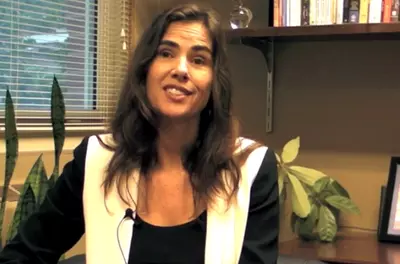Making Friends with Yourself: An Interview with Self-Compassion Expert Kristin Neff

Let’s say you mess up—you flub an important presentation at work, or you get a low grade on a final exam, or you find yourself impatiently yelling at your toddler as she cries in the supermarket. When the drama of the moment subsides, listen: what is your inner voice saying?
It’s important to listen, because the way you talk to yourself—especially when you’ve failed in some way—has an impact on your health, mood, and even your relationships with others. Do you admonish yourself for screwing up, or do you gently remind yourself that you’re only human and you’ll try harder next time? If the latter, then you’re practicing self-compassion, according to researcher Kristin Neff, author of Self-Compassion: Stop Beating Yourself Up and Leave Insecurity Behind.
Making mistakes, fumbling, and losing your cool are an inevitable part of the human experience—but most of us turn these slip-ups into an opportunity to beat ourselves up for being less than perfect. But when we see ourselves as a hopeless failure, we close our heart down to ourselves and to others.
Self-compassion isn’t self-pity (Poor me, I shouldn’t feel this bad!) or irresponsibility (I messed up? Who cares!) or even self-esteem (As long as I succeed, I feel good). It’s about recognizing that feeling down is part of the shared human experience and mindfully refraining from judging yourself.
We’ll let Dr. Neff explain the rest. Watch this video interview to learn more.

Interview with Kristin Neff
In a hurry? Skip ahead in the video to hear Kristin Neff talk about…
0:35 – The three main elements of self-compassion
2:36 – The reason why self-compassion is different from (and better than) self-esteem
4:05 – Why self-compassion can help you achieve your health goals
5:38 – How self-compassion can improve your relationships
6:40 – How Dr. Neff has used self-compassion to become a more patient, loving parent
7:34 – Simple ways you can start practicing self-compassion in your own life
9:38 – How self-compassion relates to wellbeing


